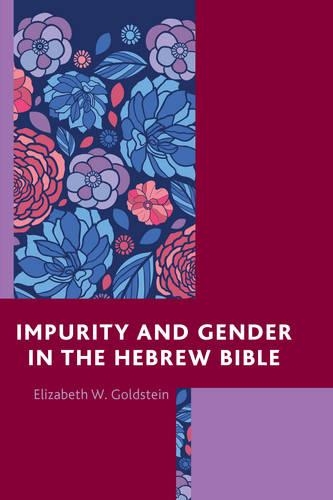
Impurity and Gender in the Hebrew Bible
(Paperback)
Available Formats
Publishing Details
Impurity and Gender in the Hebrew Bible
By (Author) Elizabeth W. Goldstein
Bloomsbury Publishing PLC
Lexington Books
7th August 2017
United States
Classifications
Professional and Scholarly
Non Fiction
Criticism and exegesis of sacred texts
Judaism: sacred texts and revered writings
Judaism
Worship, rites, ceremonies and rituals
Gender studies, gender groups
220.6
Physical Properties
Paperback
156
Width 149mm, Height 232mm, Spine 12mm
231g
Description
Impurity and Gender in the Hebrew Bible explores the role of female blood in the Hebrew Bible and considers its theological implications for future understandings of purity and impurity in the Jewish religion. Influenced by the work of Jonathan Klawans (Sin and Impurity in Ancient Judaism), and using the categories of ritual and moral impurities, this book analyzes the way in which these categories intersect with women and with the impurity of female blood, and reads the biblical foundations of purity and blood taboos with a feminist lens. Ultimately, the purpose of this book is to understand the intersection between impurity and gender, figuratively and non-figuratively, in the Hebrew Bible. Goldstein traces this intersection from the years 1000 BCE-250 BCE and ends with a consideration of female impurity in the literature of Qumran.
Reviews
In Impurity and Gender in the Hebrew Bible, Elizabeth W. Goldstein provides an extended study of the Hebrew word /ndh. Her monograph accomplishes a great deal in following the evolution of the term from its earliest stage. Throughout her grammatical, historical, and linguistic analysis of the material, she interweaves a feminist hermeneutic. Thus she seeks to determine the extent to which women were and are affected by the metaphorical use of what was originally a term for the ritual impurity imputed by a female biological process. She uses all of these methodologies effectively, and writes in an engaging and a well-organized fashion. As for her feminist hermeneutic, Goldstein proceeds with detailed objectivity and thoughtful insights. * Biblical Interpretation *
Elizabeth Goldstein unravels the tangle of associations between notions of purity and constructions of gender and elucidates the dynamic through which women become linked to sin.Her careful, clear study guides the reader through the development of a biblical trope with serious social and psychological impacts that reach into contemporary times. This book is a necessary read for biblical scholars, students of religion and all those curious about ancient social categories. -- Rachel Havrelock, University of Illinois at Chicago
Goldstein takes her readers on a fascinating trip down the historical trajectory of the term ndh. She convincingly argues that this trajectory reflects a semantic broadening resulting in significant consequences for women. Staring with understanding menstruation as a cause of ritual impurity (in P), she argues that the term then moves to indicate moral impurity (in H), to genealogical impurity (Ezra, Nehemiah), and finally to post-biblical materials (Qumran) where ndh now becomes synonymous with the grave sins brought on by moral impurity. Goldsteins work is a must read for anyone interested in exploring the link between gender and impurity in the Hebrew Bible. -- Linda S. Schearing, Gonzaga University
A thought-provoking study...[A] useful contribution. * Journal for the Study of the Old Testament *
Author Bio
Elizabeth W. Goldstein is professor in the Department of Religious Studies at Gonzaga University.
